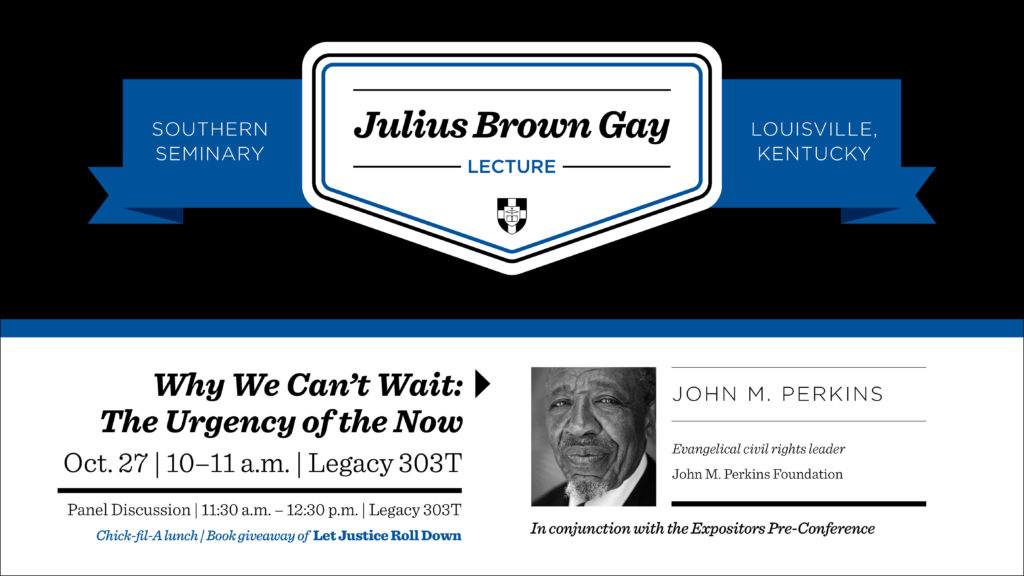The gospel and racial reconciliation
Editors note: In what follows John M. Perkins, author of Let Justic Roll Down, answers 3 questions for the October issue of Towers. Perkins will be on campus Monday, October 27 as the guest speaker for the Julius B. Gay Lecture where he will speak on “Why We Can’t Wait: The Urgency of the Now”. The…
Editors note: In what follows John M. Perkins, author of Let Justic Roll Down, answers 3 questions for the October issue of Towers. Perkins will be on campus Monday, October 27 as the guest speaker for the Julius B. Gay Lecture where he will speak on “Why We Can’t Wait: The Urgency of the Now”. The first 50 to attend the lecture will receive free copies of his book.
In your opinion, how does the gospel accomplish racial reconciliation?
For reconciliation to take place, we must create an environment that is worshipful and where God’s Word can clearly be heard. The gospel is only the gospel when the totality of the redemption is heard, when we proclaim the depths of God’s love and the longing of his people for change. That’s when reconciliation can take place. The passage that confirms that for me is in Galatians 2 when Paul confronts Peter for his discrimination against the Gentiles. He told him, he “walked not uprightly according to the truth of the gospel.” There was an expectation of brotherhood on Peter and Paul — that the gospel would burn through racial barriers. We have a deep need and longing to be reconciled, and the gospel has the power to do that.
Why should evangelicals engage in social activism?
Evangelical comes from the word “evangel,” which speaks of the angels witnessing to the fulfillment of God’s promise made when Adam sinned in the Garden of Eden — so our call as evangelicals is to proclaim the good news and the gospel. Social action is inherently a part of the gospel because it is meeting human needs. For man to exist, he must have life, and Christ affirms life because, “In him was life, and that life was the light of all mankind.” He wants us to be caretakers and managers of the earth so that life itself will flourish, and we can give to people in need and love our neighbors as we love ourselves.
Other than Switchfoot’s “The Sound (John M. Perkins’ Blues),” what is your favorite song?
“Great is Thy Faithfulness,” because it reflects the goodness of Psalm 23. It reflects the idea of goodness and mercy following me all the days of my life until they finally catch up with me, and I get to dwell in the House of the Lord forever. So, I can sing that song now, knowing that at the end of my journey, I can expect the faithfulness of God to still be there and take me home.



